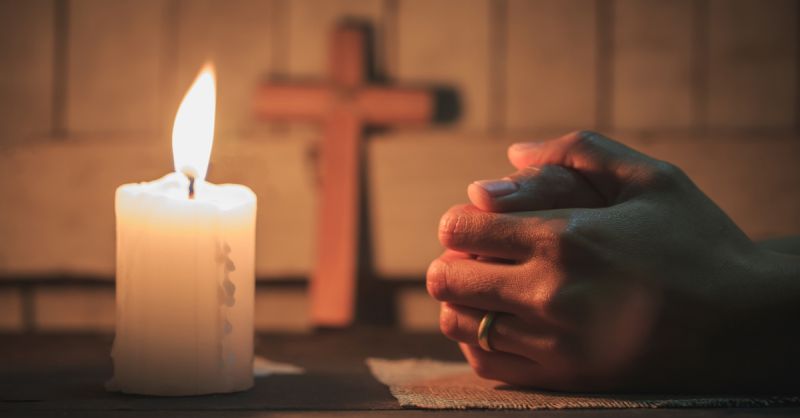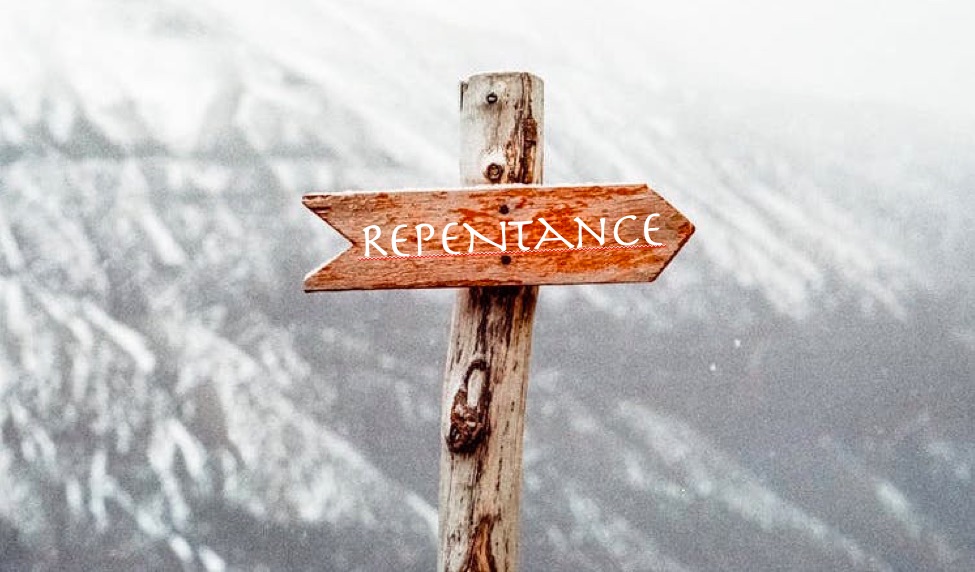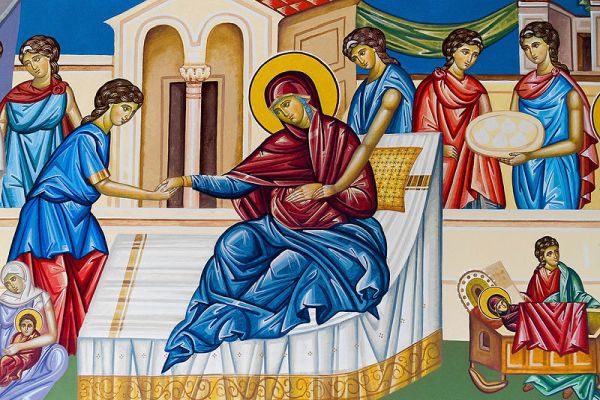Repentance that Leads
to Reconciliation
St. John Chrysostom, an early Church Father said: “Be ashamed when you sin, not when you repent – sin is the wound, repentance is the medicine.”
We all sin. The Scripture says, “There is none righteous, no, not one” (Romans 13:10). But what is the hope we have as children of God? 1 John 1:8-9 says, “If we say that we have no sin, we deceive ourselves, and the truth is not in us. If we confess our sins, He is faithful and just to forgive us our sins and to cleanse us from all unrighteousness.”
So, the remedy to sin is repentance and the only hope we have is in Christ that when we truly repent, He is faithful to forgive our sins.
What Hinders Us From
Repenting?
A heart that’s not tender: it seems our hearts are no longer tender toward our God, toward our brothers and sisters in Christ or toward our spouses and families. At the center of each of the relationship problems is our unwillingness to humble ourselves and take responsibility for our sin. Instead, we fight and manipulate others to protect our self-image.
The phrase “I have sinned against you with my words, attitude or response” comes only with great difficulty over our lips. We find it much easier to say, “I just made a dumb mistake . . . forget it.”
What’s missing in our so-called repentance is the deep sorrow the prodigal son had when he realized how much he had deeply hurt his father. This sorrow caused him to lay aside all pretense and self-protection and then to confess with a broken heart, “Father, I have sinned against heaven and in your sight” (Luke 15:21).
Even truth can divide and destroy if it is not soaked and covered in love, grace and mercy—and presented with a tender heart.
If that tenderness of heart is missing in our relationships with our brothers and sisters, God’s work is greatly hindered. For Jesus said, “If two of you agree on earth concerning anything that they ask, it will be done for them by My Father in heaven” (Matthew 18:19). With these words, the Lord clearly identified the foundation of prayer: oneness in relationship with each other.
Before going to the cross, Jesus prayed His incredible prayer on our behalf recorded in the Gospel of John. His main petition was “that they all may be one” (John 17:21).
But how is this oneness possible? Will it happen if we all think the same thoughts and, as a result, respond to one another with great kindness, love and understanding? And can we achieve these same thoughts by some deeper-level education that eliminates all differences between us and causes us to live above such things?
You already know the answer. Humanly speaking, that is impossible. Even in a small local fellowship, the believers come from different family backgrounds and upbringings. All have different personalities, behavior patterns, levels of education and spiritual understanding.
However, one key to reconciliation with one another, love, unity and following the Lord is my willingness to take responsibility for my sin. When my heart is tender before God, I will no longer accuse my brother or sister for my failure.
Instead, I will say, like the prodigal son, “Father, I have sinned.” And that attitude will open the way for God to unite us as His people and fulfill His promises. Blaming others became part of our human nature with the fall of man. Imagine this: While Adam and Eve were sinless, they daily walked hand in hand with the Almighty, who dwells in light no man can approach. But when they sinned, everything changed. God came to Adam and asked, “What on earth have you done?” and Adam answered, “Me? I didn’t do it. If You want to know the real problem, it’s this woman You gave me” (see Genesis 3:9–12).
Here God had just caught Adam red-handed. The man stood there totally naked, except for a withering fig leaf. He had just lost everything, yet he was unwilling to admit his sin. Instead, he protected and defended himself and shifted the blame to his wife.
And then when God questioned Eve, she responded, “Well, what can I say? The serpent deceived me” (Genesis 3:13, paraphrased). There will never be unity or rivers of living water flowing through our lives until we come to a place where we take responsibility for our sin.
The thief on the cross experienced this truth in the last minutes of his life when he said, “I deserve this punishment for what I have done.” And Jesus immediately responded, “Today you will be with Me in Paradise” (Luke 23:43).
Unity only happens when we yield our rights and admit our failures. If we desire reconciliation and oneness with our brothers and sisters, then keeping a tender heart is not simply an option, but it is our highest priority.
Please take time to read and follow these practical steps:
•Read Psalm 139:23-24 and say the prayer, “Search me O God and know my heart.”
•Read Psalm 51, the psalm of confession as often as possible this week.
•Pray and ask the Holy Spirit to show us specific areas in our lives where we need to reconcile with God and men.
•Take a bold step to ask for forgiveness from those we have hurt.
•Be quick to forgive others.
•Pray often each day the Jesus’ Prayer, “Lord Jesus Christ, Son of God, have mercy on me, a sinner.”
•If you need spiritual guidance in your confession, go to your priest and seek his help and prayer.
May God in His mercy and grace guide us each day of this season of Great Lent! Amen.








